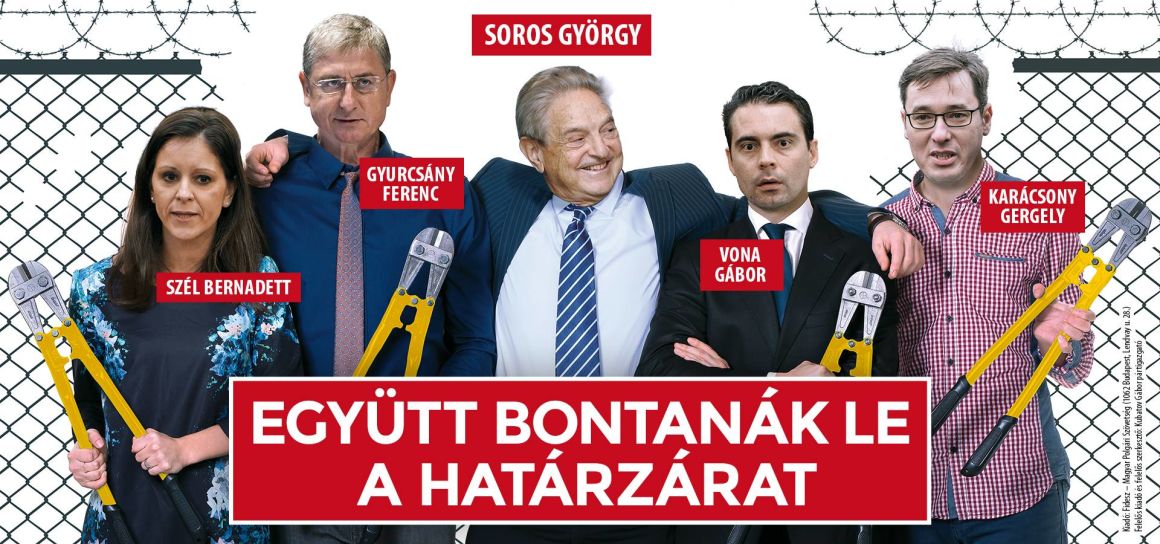Fidesz posters show the 87-year-old Jewish financier laughing with opposition leaders, including from the so-called “rightwing” neo-fascist Jobbik party, brandishing wire-cutters to take down anti-migrant border fences.
Since 1979, Soros has funded his Open Society Foundations (OSF) to the tune of tens of billions of dollars. His civil society groups around the world have been instrumental in helping to dismantle national borders.
In Hungary the money has funded NGO’s to fight the border fence President Viktor Orban erected in 2015.
Last month, however, the Hungarian government unveiled an even tougher version of its package of planned laws targeting Soros-funded NGOs.
In the original version of the law, a tax of 25 percent would be levied on organisations supporting illegal immigration. The latest version would see NGOs having to undergo a security check before being authorized to operate freely.
“If NGOs refuse to apply for this permission, or if it’s refused, a fine will be levied, and if the violation continues, they could be banned from operating,” Hungarian State Minister Bence Tuzson told AFP on Tuesday.
“Hungary is drifting away from Europe toward the Russian sphere of influence,” the Socialists’ candidate Karacsony complained to AFP.
Fidesz is however likely to secure another win in the 199-seat assembly on April 8, as Orban has campaigned almost exclusively on the issue of migration. The party was born three decades ago, in March 1988, as a youth movement opposed to the communist order in Hungary.
A 2011 law offering dual citizenship, according to Orban, “makes Hungarians officially part of the Hungarian nation again”. These dual citizens abroad can vote by post in Hungary’s elections — including on April 8.
All but a handful of those registering to vote are expected to cast their ballot in favour of Fidesz, which polls predict will sweep into power for a third consecutive term.
Around half of the two-million-strong diaspora next door to Hungary lives in the Transylvania region of central Romania, with Hungarian minorities living in Slovakia, Serbia as well as in Ukraine.
In the mostly ethnic-Hungarian town of Dunajska Streda in Slovakia, a country home to some half a million Magyars — almost 10 percent of the population — the bond is still there, almost 100 years on.
“For us Hungary is the motherland,” Gabor Racz, 43, told AFP outside a cultural centre where posters advertise visiting performers from Budapest.













No comments.
By submitting a comment you grant Free West Media a perpetual license to reproduce your words and name/web site in attribution. Inappropriate and irrelevant comments will be removed at an admin’s discretion. Your email is used for verification purposes only, it will never be shared.